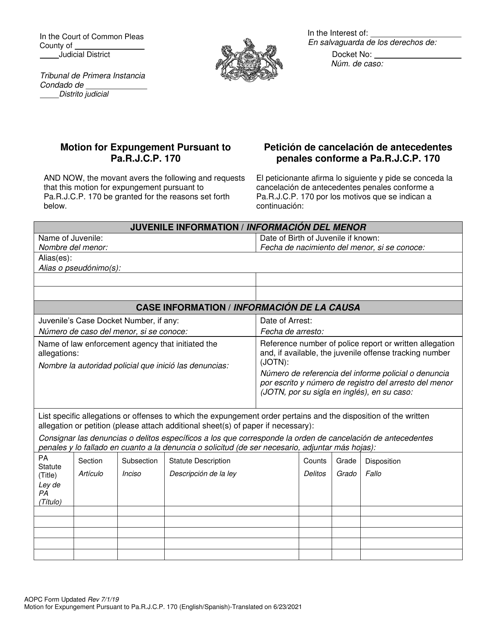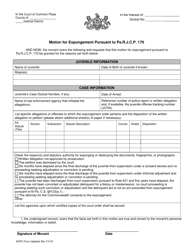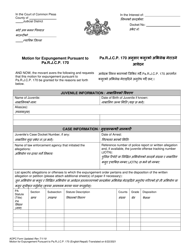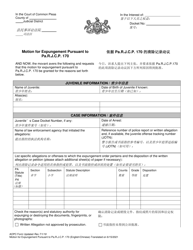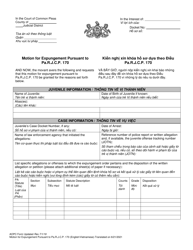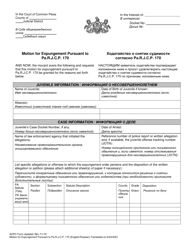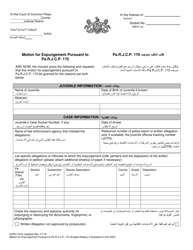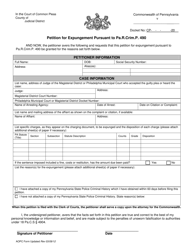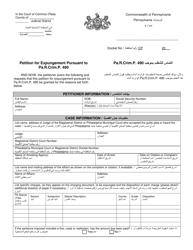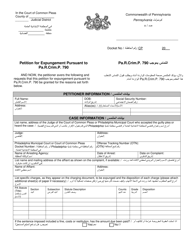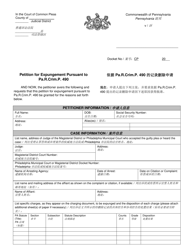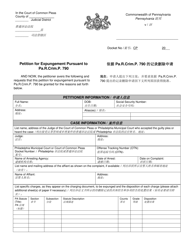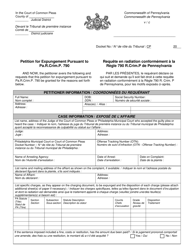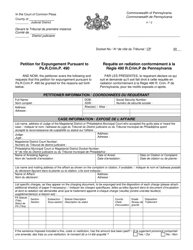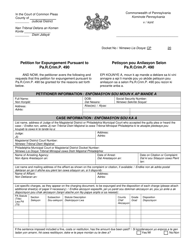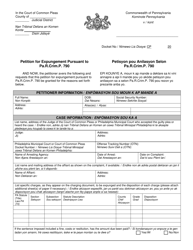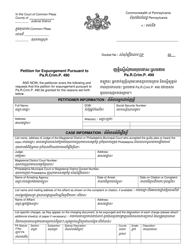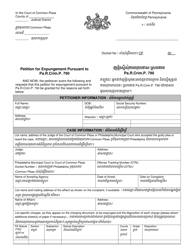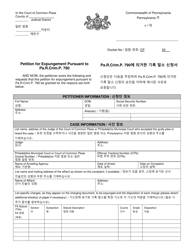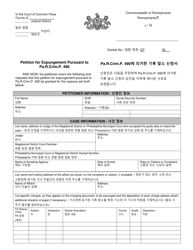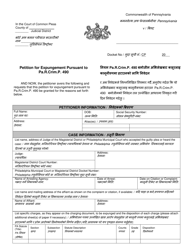Motion for Expungement Pursuant to Pa.r.j.c.p. 170 - Pennsylvania (English / Spanish)
Motion for Expungement Pursuant to Pa.r.j.c.p. 170 is a legal document that was released by the Pennsylvania Court of Common Pleas - a government authority operating within Pennsylvania.
FAQ
Q: What is a Motion for Expungement?
A: A Motion for Expungement is a request to erase or clear a criminal record.
Q: What is Pa.r.j.c.p. 170 in Pennsylvania?
A: Pa.r.j.c.p. 170 refers to the Pennsylvania Rules of Criminal Procedure, which outline the guidelines for expungement.
Q: Who can file a Motion for Expungement in Pennsylvania?
A: Any individual with a criminal record in Pennsylvania may file a Motion for Expungement.
Q: What is the purpose of filing a Motion for Expungement?
A: The purpose of filing a Motion for Expungement is to remove a criminal record from public view.
Q: How do I file a Motion for Expungement in Pennsylvania?
A: To file a Motion for Expungement in Pennsylvania, you must follow the guidelines outlined in Pa.r.j.c.p. 170 and submit the necessary forms to the appropriate court.
Q: Can a criminal record be completely erased through expungement?
A: Yes, in some cases, a criminal record can be completely erased through expungement.
Q: What happens after filing a Motion for Expungement?
A: After filing a Motion for Expungement, a hearing may be scheduled to review the request and determine if the record should be expunged.
Q: Do I need an attorney to file a Motion for Expungement?
A: While it is not required to have an attorney, it is recommended to seek legal advice when filing a Motion for Expungement.
Q: Is there a fee for filing a Motion for Expungement in Pennsylvania?
A: Yes, there is usually a fee associated with filing a Motion for Expungement in Pennsylvania. The amount may vary depending on the county.
Q: Can expungement be denied?
A: Yes, expungement can be denied if the court determines that the record should not be cleared based on certain factors.
Form Details:
- Released on June 23, 2021;
- The latest edition currently provided by the Pennsylvania Court of Common Pleas;
- Ready to use and print;
- Easy to customize;
- Compatible with most PDF-viewing applications;
- Fill out the form in our online filing application.
Download a fillable version of the form by clicking the link below or browse more documents and templates provided by the Pennsylvania Court of Common Pleas.
